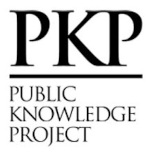Síndrome de Burnout en Psicólogos Clínicos: un Modelo de Demanda-Recursos
DOI:
https://doi.org/10.5020/23590777.rs.v24i2.e13726Palabras clave:
síndrome de burnout, inteligencia emocional, autoeficacia profesional, trabajo emocional, modelo de demandas y recursos, psicólogo clínicoResumen
Los psicólogos clínicos han sido considerados una categoría de riesgo para desarrollar el Síndrome de Burnout. Basado en el modelo Demanda-Recursos, este estudio tuvo como objetivo verificar si la Inteligencia Emocional y la Autoeficacia Profesional juegan un papel mediador entre el Trabajo Emocional y el Síndrome de Burnout en una muestra de 240 psicólogos clínicos brasileños. Los datos fueron recolectados a través de una plataforma en línea, utilizando como instrumentos de investigación un cuestionario de datos sociodemográficos y laborales, el Cuestionario para la Evaluación del Síndrome de Quemarse por el Trabajo, el Cuestionario de Evaluación relacionado con las Demandas Emocionales y Disonancia de Reglas de la emoción, Medida de Inteligencia Emocional y la Escala de Autoeficacia General Percibida. Los resultados, obtenidos a través del Modelado de Ecuaciones Estructurales, revelaron que la autoeficacia y la inteligencia emocional juegan un papel mediador entre el Trabajo Emocional y el Síndrome de Burnout.
Descargas
Citas
Allwood, C. M., Geisler, M., & Buratti, S. (2020). The relationship between personality, work, and personal factors to burnout among clinical psychologists: Exploring gender differences in Sweden. Counselling Psychology Quarterly, 35(2), 324-343. https://doi.org/10.1080/09515070.2020.1768050
Andela, M., & Truchot, D. (2016). Emotional dissonance and burnout: The moderating role of team reflexivity and re-evaluation. Stress and Health, 33(3), 179-189. https://doi.org/10.1002/smi.2695
Bakker, A. B., Demerouti, E., Taris, T., Schaufeli, W. B., & Schreurs, P. (2003). A multi-group analysis of the job demands – resources model in four home care organizations. International Journal of Stress Management, 10(1), 16-38. https://doi.org/10.1037/1072-5245.10.1.16
Bakker, A. B., & Heuven, E. (2006). Emotional dissonance, burnout, and in-role performance among nurses and police officers. International Journal of Stress Management, 13(4), 423-440. https://doi.org/10.1037/1072-5245.13.4.423
Bakker, A. B., Xanthopoulou, D., & Demerouti, E. (2022). How does chronic burnout affect dealing with weekly job demands? A test of central propositions in JD‐R and COR‐theories. Applied Psychology, 72(1), 1–22. https://doi.org/10.1111/apps.12382
Bandura, A. (1977). Self-efficacy: Toward a unifying theory of behavioral change. Psychological Review, 84(2), 191-215. https://doi.org/10.1037/0033-295X.84.2.191
Bandura, A. (2011). A social cognitive perspective on positive psychology. Revista de Psicologia Social, 26(1), 7-20. https://doi.org/10.1174/021347411794078444
Bardhoshi, G., & Um, B. (2021). The effects of job demands and resources on school counselor burnout: Self-efficacy as a mediator. Journal of Counseling & Development Research, 99(3), 289-301. https://doi.org/10.1002/jcad.12375
Bell, C., Roberts, G. L., Millear, P. M., Allen, A., Wood, A. P., Kannis‐Dymand, L., Jona, C. M., & Mason, J. (2024). The emotionally exhausted treating the mentally unwell? A systematic review of burnout and stress interventions for psychologists. Clinical Psychology & Psychotherapy, 31(1), e2909. https://doi.org.10.1002/cpp.2909
Chocano, Ó. G., López-Barajas, D. M., & García-Martínez, I. (2020). Relación entre satisfacción vital, burnout e inteligencia emocional de profesionales de atención directa a personas con discapacidad intelectual. Electronic Journal of Research in Education Psychology, 18(52), 425-446. https://doi.org/10.25115/ejrep.v18i52.3080
Clarke, J. J., Rees, C. S., Breen, L. J., & Heritage, B. (2020). The perceived effects of emotional labor in psychologists providing individual psychotherapy. Psychotherapy, 58(3), 414-424. https://doi.org/10.1037/pst0000351
Costa, F. J. L. dos S., Oliveira, L. D. A. M., Alvarenga, L. A. M. O., Oliveira, C. P., Martins, C. R., de Assis, J. T., Oesterreich, S. A., Costa, E. dos S., & Loreti, E. H. (2020). Ocorrência de Síndrome de Burnout em profissionais da saúde no Brasil. Research, Society and Development, 9(9), 1-21. http://dx.doi.org/10.33448/rsd-v9i9.7269
Costakis, H. R., Gruhlke, H., & Su, Y. (2020). Implications of emotional labor on work outcomes of service workers in not-for-profit human service organizations. Human Service Organizations: Management, Leadership & Governance, 45(1), 29-48. https://doi.org/10.1080/23303131.2020.1818157
Domingos, S. F. P., & Silva, J. C. da. (2020). Inteligências emocionais na prevenção e enfrentamento á síndrome de burnout na docência do ensino superior. VEREDAS-Revista Interdisciplinar de Humanidades, 3(5), 125-149. https://revistas.unisa.br/index.php/veredas/article/view/100
Edú-Valsania, S., Laguía, A., & Moriano, J. A. (2022). Burnout: A Review of Theory and Measurement. International Journal of Environmental Research and Public Health, 19(3), 1-27. https://doi.org/10.3390/ijerph19031780
Fontes, A. P., & Azzi, R. G. (2012). Crenças de autoeficácia e resiliência: apontamentos da literatura sociocognitiva. Estudos de Psicologia, 29(1), 105-114. https://doi.org/10.1590/S0103-166X2012000100012
França, T. L. B., Oliveira, A. C. B. L., Lima, L. F., Melo, J. K. F., & Silva, R. A. R. (2014). Síndrome de burnout: Características, diagnósticos, fatores de risco e prevenção. Revista Enfermagem UFPE on-line, 8(10), 3539-3546. https://doi.org/10.5205/reuol.6039-55477-1-ED.0810201434
Gil-Monte, P. R. (2005). El síndrome de quemarse por el trabajo. Pirâmide.
Gil-Monte, P. R. (2019). CESQT: Cuestionario para la Evaluación del Síndrome de Quemarse por el Trabajo [SBI: The Spanish Burnout Inventory] (Version 2). TEA Ediciones.
Gil-Monte, P. R., Carlotto, M. S., & Câmara, S. G. (2010). Validação da versão brasileira do Cuestionario para la Evaluación del Síndrome de Quemarse por el Trabajo em professores. Revista de Saúde Pública, 44(1), 140-147. https://doi.org/10.1590/S0034-89102010000100015
Goleman, D. (1995). Inteligência emocional. Objetiva.
Goleman, D. (2012). Inteligência emocional: A teoria revolucionária que redefine o que é ser inteligente. Objetiva.
Gomes-Valério, J. (2016). Escala Geral Percebida de Autoeficácia: Versão brasileira final. http://userpage.fu-berlin.de/~health/brazilian.pdf
Hammond, T. E., Crowther, A., & Drummond, S., A. (2018). Thematic inquiry into the burnout experience of Australian solo-practicing clinical psychologists. Frontiers in Psychology, 19(8), 1996. https://doi.org/10.3389/fpsyg.2017.01996
Hair, J. F., Jr., Black, W. C., Babin, B. J., Anderson, R. E., & Tatham, R. L. (2009). Análise Multivariada de dados (6a. ed., pp. 688). Bookman.
Heinonen, E., & Orlinsky, D. E. (2013). Psychotherapists' personal identities, theoretical orientations, and professional relationships: Elective affinity and role adjustment as modes of congruence. Psychotherapy Research, 23(6), 718-731. https://doi.org/10.1080/10503307.2013.814926
Heuven, E., & Bakker, A. (2003). Emotional dissonance and burnout among cabin attendants. European Journal of Work and Organizational Psychology, 12(1), 81-100. https://doi.org/10.1080/13594320344000039
Hochschild, A. R. (2012). The managed heart: Commercialization of human feeling. University of California Press. https://doi.org/10.1002/pam.4050030365
Hu, Q., Schaufeli, W. B., & Taris, T. W. (2011). The job demands–resources model: An analysis of additive and joint effects of demands and resources. Journal of Vocational Behavior, 79(1), 181-190. https://doi.org/10.1016/j.jvb.2010.12.009
Jeung, D.Y., Kim, C., & Chang, S. J. (2018). Trabalho emocional e burnout: Uma revisão da literatura. Jornal Médico Yonsei, 59(2), 187-193. https://doi.org/10.3349/ymj.2018.59.2.187
Joffe, A. D., & Peters, L. (2024). The association between emotional labour, affective symptoms, and burnout in Australian psychologists. Australian Psychologist, 1-13. https://doi.org/10.1080/00050067.2023.2299668
Kant, R., & Shanker, A. (2021). Relationship between emotional intelligence and burnout: An empirical investigation of teacher educators. International Journal of Evaluation and Research in Education, 10(3), 966-975. https://doi.org/10.11591/ijere.v10i3.21255
Kariou, A., Koutsimani, P., Montgomery, A., & Lainidi, O. (2021). Emotional labor and Burnout among teachers: A systematic review. International Journal of Environmental Research and Public Health, 18(23), 1-15. https://doi.org/10.3390/ijerph182312760
Kearney, C., Dunne, P., & Wales, W. J. (2020). Entrepreneurial orientation and burnout among healthcare professionals. Journal of Health Organization and Management, 34(1), 16-22. https://doi.org/10.1108/JHOM-09-2019-0259
Kesarwani, V., Husaain, Z. G., & George, J. (2020). Prevalence and factors associated with burnout among healthcare professionals in India: A systematic review and meta-analysis. Indian Journal of Psychological Medicine, 42(2), 108-115. https://doi.org/10.4103/IJPSYM.IJPSYM_387_19
Kılıçarslan, K., & Özsoy, E. (2024). Which type of emotional labor leads to burnout? Kocatepei̇i̇bfd, 26(1), 101-108. https://doi.org/10.33707/akuiibfd.1373396
Kim, H. J., Ha, J. H., & Jue, J. (2020). Compassion satisfaction and fatigue, emotional dissonance, and burnout in therapists in rehabilitation hospitals. Psychology, 11(1), 190-203. https://doi.org/10.4236/psych.2020.111013
Leiter, M. P. (2017). Burnout as a developmental process: Consideration of models. In W. B., Schaufeli, C. Maslach, & T., Marek (Eds.), Professional burnout (Cap. 14, pp. 237-250). Routledge.
Leiter, M. P., Bakker, A. B., & Maslach, C. (2014). Burnout at work: A psychological perspective. Psychology Press. https://doi.org/10.4324/978131589416
Martel, M., J. S., & Santana, J., D. M. (2019). Influencia del perfil sociodemográfico del profesor universitario sobre la inteligencia emocional y el burnout. Educación XX1, 22(2), 93-117. https://doi.org/10.5944/educxx1.22514
Matos, M. da S., & Borowski, S. B. V. (2019). Vivências emocionais e estratégias de regulação emocional de psicólogos clínicos: Um estudo qualitativo. Estudos Interdisciplinares em Psicologia, 10(3), 160-180. https://doi.org/10.5433/2236-6407.2019v10n3p160
Mendonça, N. R. F., Santana, A. N., & Bueno, J. M. H. (2023). The relationship between burnout and emotional intelligence: A meta-analysis. Revista Psicologia: Organizações e Trabalho, 23(2), 2471-2478. https://doi.org/10.5935/rpot/2023.2.23748
Mayer, J. D., & Salovey, P. (1997). What is emotional intelligence? In P. Salovey & D. Sluyter (Eds.), Emotional development and emotional intelligence: Implications for educators (Cap. 1, pp. 3-31). Basic Books.
Moncayo-Rizzo, J., Alvarado-Villa, G., & Cossio-Uribe, C. (2024). The impact of illegitimate tasks on burnout syndrome in a healthcare system: A cross-sectional study. International Journal of Nursing Studies Advances, 6, 100185. https://doi.org/10.1016/j.ijnsa.2024.100185
Moreno-Jiménez, B., Hernández, E. G., Carvajal, R. R., Gamarra, M. M., & Puig, R. F. (2009). El burnout del profesorado universitario y las intenciones de abandono: Un estudio multi-muestra. Revista de Psicología del Trabajo y de las Organizaciones, 25(2), 149-163. https://doi.org/10.4321/s1576-59622009000200005
Odonkor, S. T., & Frimpong, K. (2020). Burnout among healthcare professionals in Ghana: A critical assessment. BioMed Research International, 2020(1), 1-8. https://doi.org/10.1155/2020/1614968
Palma, E. M. S., & Gondim, S. M. G. (2019). Relations among psychotherapists’ epistemic orientation, personal style and emotion regulation. Psicologia: Teoria e Pesquisa, 35, e35426. https://doi.org/10.1590/0102.3772e35426
Peña-Sarrionandia, A., Mikolajczak, M., & Gross, J. J. (2015). Integrating emotion regulation and emotional intelligence traditions: A meta-analysis. Frontiers in Psychology, 6(160), 1-27. https://doi.org/10.3389/fpsyg.2015.00160
Pujol-Cols, L., & Dabos, G. E. (2021). Respuestas diferenciales ante las demandas emocionales del trabajo: Una revisión de la literatura sobre características individuales y trabajo emocional. Estudios Gerenciales, 37(160), 472-491. https://doi.org/10.18046/j.estger.2021.160.4088
Ramírez, M. R., Otero, P., Blanco, V., Ontaneda, M. P., Díaz, O., & Vázquez, F. L. (2018). Prevalence and correlates of burnout in health professionals in Ecuador. Comprehensive Psychiatry, 82, 73–83. https://doi.org/10.1016/j.comppsych.2017.11.011
Rodriguez, S. Y. S., & Carlotto, M. S. (2017). Predictors of Burnout Syndrome in psychologists. Estudos de Psicologia, 34(1), 141-150. https://doi.org/10.1590/1982-02752017000100014
Rodriguez, S. Y. S., & Carlotto, M. S. (2014). Prevalência e fatores associados à Síndrome de Burnout em Psicólogos. Ciência & Trabalho, 16(51), 170-176. https://doi.org/10.4067/s0718-24492014000300008
Rodriguez, S. Y. S., Carlotto, M. S., & Câmara, S. G. (2017). Impacto da regulação de emoções no trabalho sobre as dimensões de Burnout em psicólogos: O papel moderador da autoeficácia. Análise Psicológica, 35(2), 191-201. https://doi.org/10.14417/ap.1147
Rodriguez, S. Y. S., Marques, V. da S., Taube, M. E., & Carlotto, M. S. (2020). Síndrome de Burnout em psicólogos: Revisão sistemática da literatura. Contextos Clínicos, 13(3), 967- 991. https://doi.org/10.4013/ctc.2020.133.12
Salanova, M., & Schaufeli, W. (2009). El Engagement en el trabajo: Cuando el trabajo se convierte en pasión. Alianza Editorial.
Saakvitne, K. (2008). Occupational vulnerability for psychologists. American Psychological Association. https://www.apaservices.org/practice/ce/self-care/vulnerability
Spiendler, S., Carlotto, M., Ogliari, D., & Giordani, K. (2015). Estressores ocupacionais em psicólogos clínicos brasileiros. Psicogente, 18(33), 104-116. http://doi.org/10.17081/psico.18.33
Srivastava, S., Jain, A. K., & Sullivan, S. (2019). Employee silence and burnout in India: The mediating role of emotional intelligence. Personnel Review, 48(4), 1045-1060. https://doi.org/10.1108/PR-03-2018-0104
Simbula, S., Guglielmi, D., & Schaufeli, W. B. (2011). A three-wave study of job resources, self-efficacy, and work engagement among Italian schoolteachers. European Journal of Work and Organizational Psychology, 20(3), 285–304. https://doi.org/10.1080/13594320903513916
Siqueira, M. M. M., Barbosa, N. C., & Alves, M. T. (1999). Construção e Validação Fatorial de uma medida de inteligência emocional. Psicologia: Teoria e Pesquisa, 15(2), 143-152. https://doi.org/10.1590/S0102-37721999000200007
Turnbull, M. G., & Rhodes, P. (2021). Burnout and growth: Narratives of Australian psychologists. Qualitative Psychology, 8(1), 51-61. https://doi.org/10.1037/qup0000146
Unger, A., Papastamatelou, J., Vowinckel, J., Klamut, O., & Heger, A. (2022). Time is the fire in which we burn (out): How time perspectives affect burnout tendencies in health care professionals via perceived stress and self-efficacy. Psychological Studies, 67, 150-163. https://doi.org/10.1007/s12646-022-00640-3
Van Gelderen, B. R. (2013). At the heart of policing: Emotional labor among police officers. Ridderprint BV.
Vignoli, M., Mazzetti, G., Converso, D., & Guglielmi, D. (2021). How workers’ emotional dissonance explains the association between customers’ relations, burnout and health in an Italian supermarket chain. Medicina del Lavoro, 112(3), 200-208. https://doi.org/10.23749/mdl.v112i3.9907
World Health Organization [WHO]. (2019, 28 may). Burn-out an "occupational phenomenon": International Classification of Diseases. https://www.who.int/mental_health/evidence/burn-out/en/
Wood, R., & Bandura, A. (1989). Social Cognitive Theory of Organizational Management. Academy of Management Review, 14(3), 361-384. https://doi.org/10.5465/amr.1989.4279067
Yang, Y., & Hayes, J. A. (2020). Causes and consequences of burnout among mental health professionals: A practice-oriented review of recent empirical literature. Psychotherapy, 57(3), 426–436. https://doi.org/10.1037/pst0000317
Yulianti, P., & Madina, N. N. (2018, July 7-9). Antecedent burnout: Emotional job demand, emotional display rules, emotional dissonance [Conference presentation abstract]. The 2018 International Conference of Organizational Innovation, KnE Social Sciences, Fukuoka, Japan. https://doi.org/10.18502/kss.v3i10.3459
Zapf, D. (2002). Emotion work and psychological well-being: A review of the literature and some conceptual considerations. Human Resource Management Review, 12(2), 237-268. https://doi.org/10.1016/S1053-4822(02)00048-7
Zapf, D., & Holz, M. (2006). On the positive and negative effects of emotion work in organizations. European Journal of Work and Organizational Psychology, 15(1), 1-28. https://doi.org/10.1080/13594320500412199
Zapf, D., Vogt, C., Seifert, C., Mertini, H., & Isic, A. (1999). Emotion work as a source of stress: The concept and development of an instrument. European Journal of Work and Organizational Psychology, 8(3), 371-400. https://doi.org/10.1080/135943299398230
Descargas
Publicado
Cómo citar
Número
Sección
Licencia
Derechos de autor 2024 Revista Subjetividades

Esta obra está bajo una licencia internacional Creative Commons Atribución-NoComercial 4.0.
Para autores: Cada manuscrito deverá ser acompanhado de uma “Carta de submissão” assinada, onde os autores deverão declarar que o trabalho é original e inédito, se responsabilizarão pelos aspectos éticos do trabalho, assim como por sua autoria, assegurando que o material não está tramitando ou foi enviado a outro periódico ou qualquer outro tipo de publicação.
Quando da aprovação do texto, os autores mantêm os direitos autorais do trabalho e concedem à Revista Subjetividades o direito de primeira publicação do trabalho sob uma licença Creative Commons de Atribuição (CC-BY), a qual permite que o trabalho seja compartilhado e adaptado com o reconhecimento da autoria e publicação inicial na Revista Subjetividades.
Os autores têm a possibilidade de firmar acordos contratuais adicionais e separados para a distribuição não exclusiva da versão publicada na Revista Subjetividades (por exemplo, publicá-la em um repositório institucional ou publicá-la em um livro), com o reconhecimento de sua publicação inicial na Revista Subjetividades.
Os autores concedem, ainda, à Revista Subjetividades uma licença não exclusiva para usar o trabalho da seguinte maneira: (1) vender e/ou distribuir o trabalho em cópias impressas ou em formato eletrônico; (2) distribuir partes ou o trabalho como um todo com o objetivo de promover a revista por meio da internet e outras mídias digitais e; (3) gravar e reproduzir o trabalho em qualquer formato, incluindo mídia digital.
Para leitores: Todo o conteúdo da Revista Subjetividades está registrado sob uma licença Creative Commons Atribuição (CC-BY) que permite compartilhar (copiar e redistribuir o material em qualquer suporte ou formato) e adaptar (remixar, transformar e criar a partir do material para qualquer fim) seu conteúdo, desde que seja reconhecida a autoria do trabalho e que esse foi originalmente publicado na Revista Subjetividades.





















